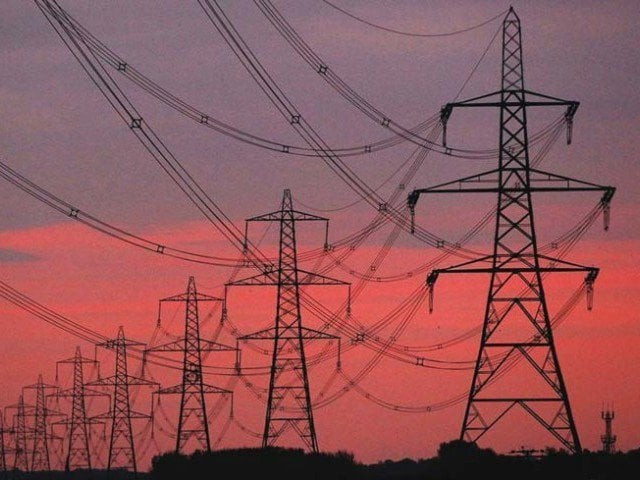Amnesty scheme: Power defaulters to enjoy 30% ‘discount’ on arrears
Dues of private sector amount to Rs342.7b; only Rs181.8b can be recovered, says govt

It has now come up with an amnesty scheme that lessens the ‘burden’ on defaulters of electricity bills. PHOTO: REUTERS
This could very well be another form of statutory regulatory order (SRO). While the government is in the process of withdrawing SROs to increase dwindling tax revenues, it has now come up with an amnesty scheme that lessens the ‘burden’ on defaulters of electricity bills.
As outstanding dues of the private sector mount up to Rs342.7 billion, the federal government on Wednesday approved an amnesty scheme for these defaulters and has waived 30% of their arrears.
It had only expected to collect Rs181.8 billion of the total amount due and has now even granted a waiver on the expected collection if the arrears are cleared.
The amnesty scheme, approved by the Economic Coordination Committee (ECC) of the cabinet, is seen as rewarding those who owe billions of rupees to the exchequer and are still enjoying electricity supply.
The body also approved the Power Purchase Agreements (PPA) with Rental Power Plants (RPPs), which had been set during the Pakistan Peoples Party government and struck down by the Supreme Court. It allowed signing PPA for buying 150 megawatts of electricity. In March last year, the ECC had allowed to negotiate with these RPPs.
The ECC also approved issuance of sovereign guarantee for procurement of six Maritime Patrol Vessels (MPVs) for Pakistan Maritime Security Agency (PSMA) at a cost of Rs13.9 billion from China. The ECC doubled the rate of regulatory duty on import of sugar from 20% to 40% aimed at protecting the sugar barons at the expense of consumers. The decision will force the consumers to buy domestically produced sugar at Rs60 per kilogramme while the imported sugar’s price is Rs35 per kg.
It also increased regulatory duty on import of wheat from 25% to 40%, as prices of the commodity in international markets further plunge. The cost of imported wheat is Rs23 per kg.
Amnesty scheme
The Ministry of Water and Power proposed to the ECC that the electricity dues of defaulters should be waived off by half, if they pay their bills before the end of July. For those who pay their bills in August, the ministry had proposed 40% waiver and those who settle their arrears in September, it had proposed a 30% waiver.
However, the ECC approved 30% rebate for those who clear their dues until July, 25% for those who clear bills in August and 20% for those who pay dues by September this year. The ECC decided that if the defaulters did not clear their dues by September, their cases would be sent to the National Accountability Bureau for ensuring recoveries.
It has also proposed a 5% reward for officials at power distribution companies who help recover dues and 10% for FIA and Police for helping in recovering the outstanding arrears.

The private sector’s power dues have mounted up to Rs342.7 billion, indicating a weakening writ of the state. In its summary, the Ministry of Water and Power told the ECC that out of Rs342.7 billion an amount of Rs181.8 billion can be recovered. The amnesty scheme will then apply to the expected collection.
The non-payment of electricity bill is one of the main reasons behind the unending inter-corporate power sector debt. According to a World Bank report, by March this year, bill collection stood at 88.5%, only 2.5% up from June 2013 level. The remaining 11.5% is being added into circular debt each month.
Regulatory duty
In order to protect sugar millers, the ECC imposed 20% additional regulatory duty on import of sugar. In November last year, it had also imposed 20% regulatory duty and denied benefits to the consumers. It has also, so far, given Rs1.6 billion subsidies to international consumers on export of sugar. In November, the ECC had allowed the export of surplus 500,000 tons of sugar at subsidised rate.
The ECC extended the deadline for export of wheat and wheat flour (Aata) for Sindh and Punjab up to July 31, 2015. In January this year, the ECC had allowed the provinces to export a total of 1.2 million tons of wheat. It also increased regulatory duty on wheat import from 25% to 40%.
Defence procurement
The ECC approved issuance of sovereign guarantee for procurement of six Maritime Patrol Vessels (MPVs) for Pakistan Maritime Security Agency (PSMA) on a soft-loan basis at a cost of Rs13.9 billion or $135 million. The ships are being purchased from China Shipbuilding and Trading Company Limited.
Salaries
The ECC approved an amount of Rs64 million for the payment of two months (April-May 2015) salaries to the employees of the Pakistan Machine Tool Factory. On another proposal, it approved payment of two months (January-February 2015) salaries to the employees of Pakistan Steel Mills (PSM) and also asked PSM to give a clear road map so that a decision about its future could be made.
Published in The Express Tribune, June 18th, 2015.
Like Business on Facebook, follow @TribuneBiz on Twitter to stay informed and join in the conversation.



















COMMENTS
Comments are moderated and generally will be posted if they are on-topic and not abusive.
For more information, please see our Comments FAQ